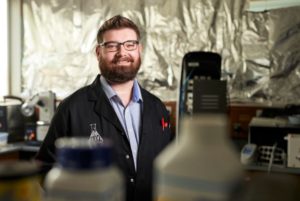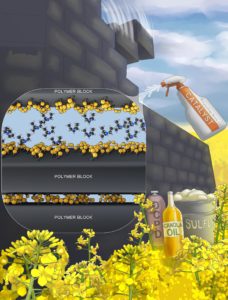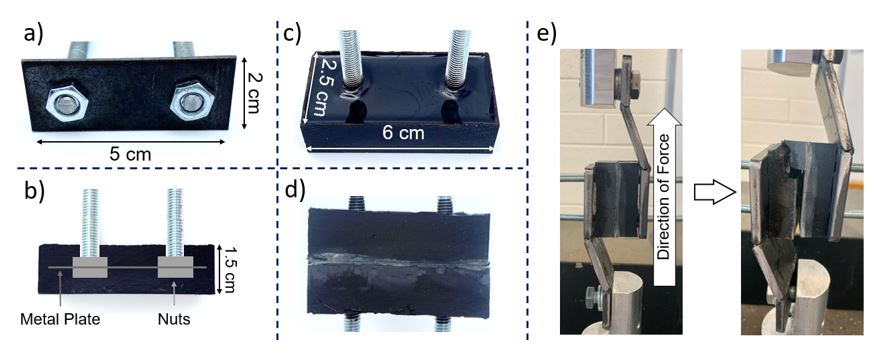
Firing bricks and making mortar and cement is costly, but organic chemists at Flinders University are working on more sustainable alternatives – focusing on building materials made from waste products.
In another move into the circular economy, researchers from the Chalker Lab have used low-cost feedstocks to make lightweight, durable polymer building blocks which can be bonded together with an adhesive-free chemical reaction.
Their latest study tested the strength of these materials and explored ways they can be reinforced in construction.

Matthew Flinders Professor of Chemistry, Justin Chalker, says the need to develop sustainable building materials is increasingly important, with cement, iron and steel production accounting for more than 15% of global CO2 emissions each year.
“In this study, we tested a new type of brick we can make from waste cooking oil, mixed with sulfur and dicyclopentadiene (DCPD). Both sulfur and DCPD are byproducts of petroleum refining.
“The bricks bond together without mortar upon application of a trace amount of amine catalyst.
“All the starting materials are plentiful and can be classified as industrial waste.”
“This research is part of a larger effort to move towards a sustainable built environment,” says project leader Professor Chalker.
The Chalker Lab’s new polymer research team at Flinders University’s College of Science and Engineering is collaborating with Clean Earth Technologies for further development. scale-up and possible commercialisation.

The latest study, published as a cover feature in a special issue on Sustainability in the journal Macromolecular Chemistry and Physics, expanded the research to test the new bricks’ mechanical properties and look at ways to reinforce them in construction, including carbon fibre fillers.
Chalker Lab research associate Dr Maximilian Mann says as well as repurposing waste materials into value-added construction materials, the polymer bricks’ sulfur-sulfur bond means they can be bound together without mortar like traditional building method.
“The bonding in this novel catalytic process is very strong, producing a sustainable construction material with its own mortar which will potentially streamline construction,” Dr Mann says.

First author Paris Pauling says the research is an excellent example of new scientific developments in sustainable materials science.
The paper, Chemically Activated S-S Metathesis for Adhesive-Free Bonding of Polysulfide Surfaces (2022) by M Mann, PJ Pauling, SJ Tonkin, JA Campbell and JM Chalker is the lead article in the Sustainability edition of the journal Macromolecular Chemistry and Physics DOI: 10.1002/macp.202100333

